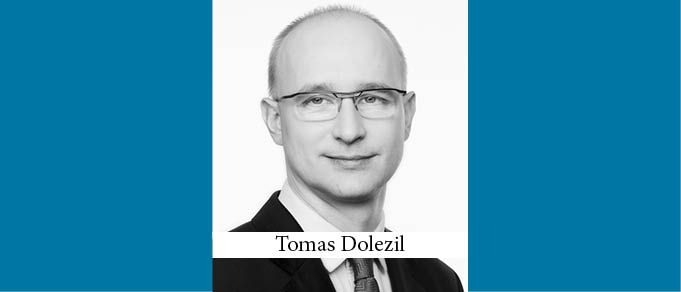Things are pretty calm on the legislative front in the Czech Republic at the moment, says JSK Partner Tomas Dolezil, and nothing big is expected for the next few months either. "But next year,” he says, "the new government needs to prepare a number of legislative proposals. For instance, the Ministry of Finance is working on a reform of the Czech Capital Market.” According to Dolezil, “a concept is being discussed and produced, and is now waiting for some political guidance or discretion, and on this basis we expected legislative changes to be proposed next year. Among others it is expected that the changes will affect the Private Equity/ Venture Capital sector.”
The market itself is quite busy, Dolezil reports. "There is a lot of activity in the M&A market, as there has been for the past two years, in particular in the Czech mid-market,” he says. Still, even there, he says, "I can feel some difference from the past year or two in that the transactions are a bit slower now. Parties are not that easily coming to a conclusion and closing — they are a little more hesitant, a little more careful.” According to him, this is in large part a function of mis-matched evaluations. "The sellers’ expectations regarding the value of their businesses is really high — and not always realistic.”
It’s suggested to Dolezil that this phenomenon may be related, in part, to the increasing number of individuals who founded companies in the early years after communism now preparing their exits and retirements. Dolezil agrees that that is “definitely” a contributing factor. "Partners believe, as they did before the 2008 financial crisis, that their businesses have greater value in the eyes of investors,” he says. “But investors see things differently, from a financial point of view — and they don’t have the emotional capital that the founders are considering.” Not all of those companies are being sold to outside investors, of course, and he concedes that "you can see cases of successful succession to the family members,” but he says, "the truth is that the majority of cases are not going in this direction, and the founders are more often selling.”
In terms of what sectors are particularly active, Dolezil suggests that “traditional sectors in the Czech Republic are strong, like energy or machinery, obviously. In the last three years we’ve seen a lot of activity in e-commerce. And TMT generally is active.” He says, “there is a lot of activity on the real estate transactional market, as there has been for two or three years now.” It’s put to him that some peers in other markets have reported the beginnings of a real estate bubble. "We can see a bubble in various sectors here as well,” he says, “and especially residential real estate is overheated (in Prague in particular) — but the offices and retail sector is not so bad right now."
As far as the legal market goes, Dolezil says, “the major phenomenon is the number of spin-offs and boutiques.” He acknowledges that for clients, at least, "this is probably a good phenomenon — more choices, and clients always benefit from greater competition.” Of course, “for firms more competition is a challenge.” He is asked whether fees are continuing to drop from the pressure. "Fortunately, in the last two of three years, we don’t see that prices are going down,” he says, "since there is a lot of work in the market — but fees are also not returning to what they were before 2008.”
Ultimately, Dolezil says he’s content. It being August, “things are slower at the moment,” he says, "but there are some transactions still pending. The pipeline is healthy.” He concedes that of course not everything will materialize, “but for the next 6-9 months at least things look very good.”

















